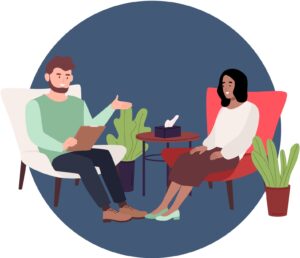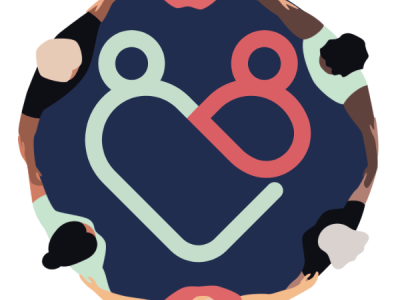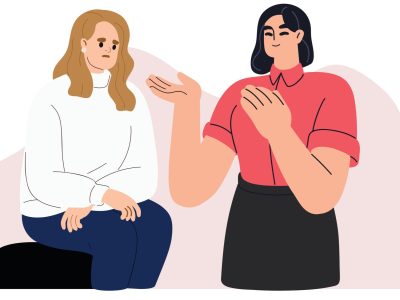The United States is in the midst of an escalating mental health crisis fueled by increasing demand for services and a severe shortage of licensed clinicians. Over 149 million Americans live in areas designated as mental health professional shortage zones. This crisis disproportionately affects rural areas and underserved communities, where there is fewer than one mental health provider for every 30,000 residents.
Addressing the root causes of this crisis—such as systemic inequality, discrimination, poverty, gun violence, child abuse, toxic stress, social media dangers, and pervasive loneliness—can feel overwhelming, especially now, as the new administration assumes office.
We can, however, address current suffering by dramatically increasing access to one of the best treatments for mental health conditions: mental health counseling.
Mental health counseling is one of the most effective treatments for mental health conditions such as anxiety, depression, addiction, and trauma-related disorders, yet access to mental health counseling is at an all-time low, particularly for people of color.

Mental Health First Aid: A bridge to nowhere
Since its introduction in the U.S. in 2008, Mental Health First Aid (MHFA) has trained over 4 million individuals to identify signs of mental health crises and connect those in need with professional support. MHFA has made invaluable contributions to our communities, increasing mental health awareness and reducing stigma, with research confirming that MHFA training enhances empathy and helps to dismantle stereotypes about mental illness.
While MHFA has effected meaningful progress in destigmatization, its “recognize and refer” protocol exposes a critical flaw: it assumes the availability of adequate, accessible mental healthcare services. This assumption is faulty. In most communities in the United States, stretched-thin systems lead to months-long waitlists for care; finding someone who speaks the same native language is often impossible.
When MHFA-trained individuals attempt to refer someone to non-existent or inaccessible services, this ‘bridge to nowhere’ results in frustration on both sides. The person in crisis may feel abandoned, and the helper may feel powerless, sometimes even exacerbating the mental health challenges they aimed to alleviate.
No more referrals: Increasing access to treatment
We have the resources to make mental health counseling widely available.
Even in the most severe mental health shortage zones, there are professionals already embedded in communities, such as Community Health Workers, Peer Specialists, Case Managers, school personnel, promotores, faith leaders, first responders, and more. These folks regularly interact with individuals experiencing mental health challenges.
What if, instead of referring to nowhere, some of these frontline workers were trained to provide evidence-based mental health counseling? What if instead of trying to find help, these workers are the help? Equipping these individuals with mental health counseling skills can substantially expand access to care, dramatically increasing the number of providers who are able to offer mental health support within a community. These individuals are often more reflective of the communities they serve, sharing their language, cultural background, and lived experiences, which enhances the quality and relevance of care.
Does that even work?
The concept of training “lay” counselors to deliver mental health treatment is not new. Many countries have successfully utilized lay counseling models for decades, with numerous studies showing that trained lay counselors deliver outcomes on par with licensed clinicians. These programs have proven effective across diverse cultural contexts, from treating depression in rural India, PTSD in war-torn regions, depression in seniors in the US, and more.
Our data reinforces these findings. Our team consists of two-thirds lay counselors and one-third licensed clinicians. Across four studies on patient-reported satisfaction and outcomes, we’ve consistently found virtually no outcome differences between the two groups. These results underscore the potential of lay counselors to expand access without compromising quality.
Isn’t that dangerous?
Understandably, the idea of unlicensed individuals providing mental healthcare raises concerns. Fears about unqualified helpers causing harm are valid and must be addressed (it is also important to acknowledge that while degrees and licenses are often considered benchmarks of expertise, they do not always reliably indicate the quality or safety of care provided).
Carefully selecting lay counselors for traits like self-awareness, empathy, interpersonal skills, and humility, combined with comprehensive training in evidence-based strategies and ongoing clinical supervision, is a multifaceted approach to managing these risks. Lay counselors can deliver safe, effective, and scalable mental health services when embedded within supportive teams.
No more referring…let’s start treating!
We need more than ‘recognize and refer’ to address the crisis we face. Programs like MHFA have laid a crucial foundation- we must now build on that foundation with solutions that expand direct treatment options. Empowering lay counselors to provide care can revolutionize a system that too often leads to dead ends, and instead create one that delivers genuine, relationship-centered mental health support for all.





